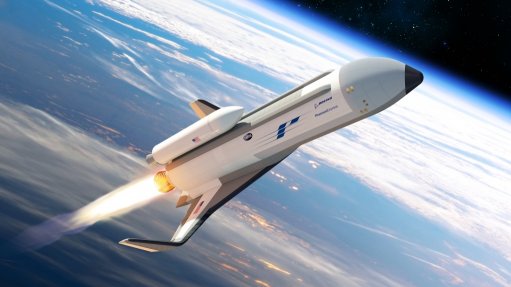
REUSABILITY Being able to reuse launch vehicles will reduce the cost of orbiting small satellites
US aerospace company Boeing and the US Defense Advanced Research Projects Agency (Darpa) announced last month that they would collaborate on a project to design, build and test a technology demonstration vehicle capable of launching small payloads into low earth orbit as part of Darpa’s Experimental Spaceplane (XS1) programme.
Under the programme, Boeing will develop an autonomous, reusable spaceplane capable of carrying and deploying a small expendable upper-stage vehicle to launch small satellites – weighing about 1.3 t – into low earth orbit. Boeing and Darpa will jointly invest in the development.
In the aerospace and defence industry, there have been rumours that the XS-1 spaceplane could accelerate the recommissioning of new satellites in circumstances where a military or commercial satellite is lost.
The concept of the spaceplane – called Phantom Express – is based on the ability to reach the edge of space, after which it will deploy a second-stage vehicle and subsequently return to earth to be reused. The spaceplane will be able to land on a runway, after which it will be prepared for its next flight by applying operation and maintenance principles similar to modern aircraft.
Boeing Phantom Expresss president Darryl Davis says the Phantom Works is designed to disrupt and transform the satellite launch process, as it is currently known, thereby creating a new, on-demand space-launch capability that can be achieved more affordably and with less risk.
Powering the spaceplane will be an Aerojet Rocketdyne AR-22 engine – a version of the main engine used to propel the historic space shuttle. The engine is designed to be reusable and uses a fuel comprising liquid oxygen and liquid hydrogen.
Phantom Express will offer an advanced airframe design and third-generation thermal protection to create a vehicle capable of flying at high flight velocity while carrying a smaller, more affordable expendable upper stage to achieve mission objectives.
Boeing and Darpa plan to conduct a demonstration of ten flights over ten days in the test phase of the programme.